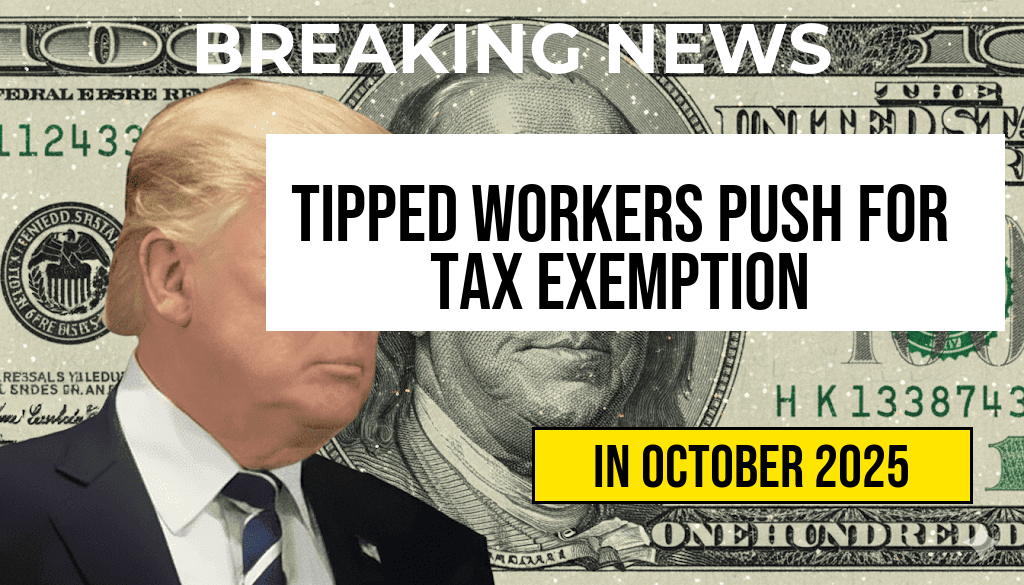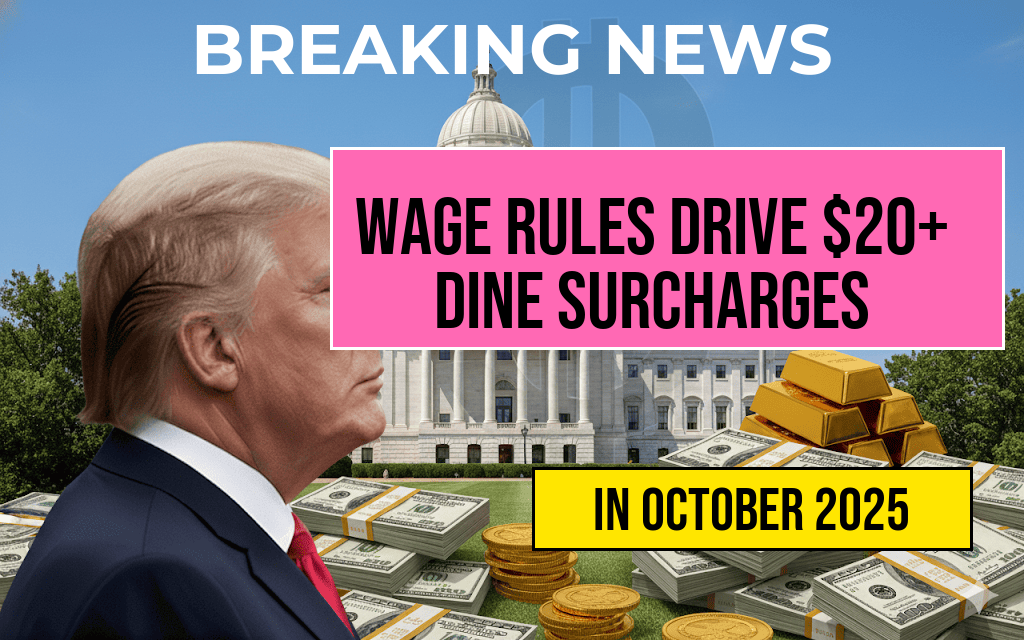Tipped workers across the United States are advocating for a significant change in tax regulations, seeking a $25,000 tax exemption on their earnings. This request comes as many workers in industries like hospitality and food service face financial uncertainty due to rising living costs. However, the proposed exemption could inadvertently lead to a reduction in eligibility for the Earned Income Tax Credit (EITC), which could cost some workers over $1,000 in benefits. As the debate unfolds, stakeholders are weighing the benefits of the tax exemption against the potential loss of crucial financial support for low-income families.
The Push for a Tax Exemption
Proponents of the $25,000 tax exemption argue that it would provide much-needed relief for tipped workers who often rely on variable income from gratuities. Many of these workers find themselves in precarious financial situations, especially during off-peak seasons or economic downturns. The exemption is seen as a way to offer more stability and encourage a fair income for those in service jobs.
Potential Impact on EITC Benefits
While the exemption aims to alleviate financial pressure, experts caution that it could have unintended consequences, particularly regarding the Earned Income Tax Credit. The EITC is designed to assist low to moderate-income working individuals and families by reducing their tax burden and increasing their refund amount. However, eligibility is determined by income thresholds that could be affected by the proposed exemption.
- If a tipped worker’s income increases due to the exemption, it may push them above the EITC eligibility limits.
- Some workers could lose over $1,000 in EITC benefits, negating the financial relief intended by the tax exemption.
Voices from the Industry
Many tipped workers are torn about the proposed exemption. For some, the promise of a tax break is enticing, yet the potential loss of EITC benefits raises significant concerns. “I rely on my EITC every year to help cover my bills and support my family,” said Maria Gonzalez, a waitress in New York City. “If I lose that because of a tax exemption, it doesn’t really help me.”
Legislative Responses
Lawmakers are currently analyzing the implications of the proposed exemption. Supporters argue that adjusted tax policies could stimulate economic growth by providing more disposable income to workers. Critics, however, emphasize the risks associated with losing vital support systems like the EITC.
State-level representatives have been particularly vocal. “We need to find a balance that supports our workers without jeopardizing their financial stability,” stated Congressman James Parker, who represents a district with a high concentration of tipped workers. “We are working to ensure that any changes made to tax laws are beneficial and do not leave our workers worse off.”
Comparative Analysis of Tax Policies
| Scenario | Current Situation | With $25,000 Exemption |
|---|---|---|
| Annual Income | $30,000 | $55,000 |
| EITC Eligibility | Eligible | Potentially Ineligible |
| EITC Benefits | $1,500 | $0 |
Looking Ahead
As discussions continue, the future of the proposed $25,000 tax exemption remains uncertain. Advocacy groups are calling for comprehensive reviews of tax policies to ensure that the needs of tipped workers are met without compromising their financial security. The outcome will depend on ongoing negotiations among policymakers, industry representatives, and worker advocates, all striving to create a fairer economic landscape for those who depend on tips for their livelihoods.
For more detailed information on the EITC, visit the Forbes guide or refer to the official IRS website. Understanding these nuances is critical for both workers and policymakers as they navigate the complexities of tax regulations.
Frequently Asked Questions
What is the proposed $25,000 tax exemption for tipped workers?
The proposed $25,000 tax exemption aims to provide financial relief to tipped workers by allowing them to exclude a portion of their income from taxation, thereby increasing their take-home pay.
How could this tax exemption affect EITC benefits for workers?
While the exemption could benefit tipped workers, it also poses a risk of losing over $1,000 in Earned Income Tax Credit (EITC) benefits, as the exemption may alter their overall income calculations.
Who would be eligible for the $25,000 tax exemption?
The $25,000 tax exemption is primarily aimed at tipped workers, including those in industries such as hospitality and service, where tipping is a significant part of their income.
What are the potential drawbacks of implementing this tax exemption?
One major drawback is the potential loss of EITC benefits, which provide essential support to low-income workers. For some, the exemption could result in a net loss rather than a gain in financial support.
What steps are being taken to advocate for the tax exemption?
Advocacy groups for tipped workers are actively campaigning for the $25,000 tax exemption, emphasizing the need for fair compensation and better financial security while also addressing concerns regarding EITC impacts.






